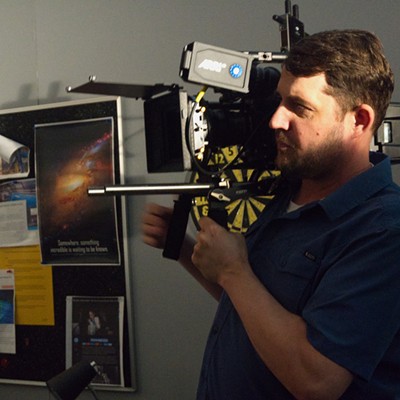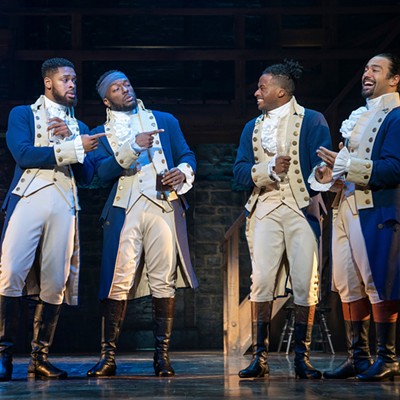
Pollard Theatre Company has revived its production of the musical Passing Strange with nearly the same cast and creative team from its terrific 2011 staging of the show. If you missed it then, now is the chance to atone for that sin. If you saw it before, rest assured that it’s back with the same freshness and energy.
In fact, the production looks better on second viewing. Timothy Stewart’s direction is again sure-handed, and Christopher Castleberry’s choreography still crackles.
The cast brings strong talent, high professionalism and the special something that separates outstanding from the merely good. W. Jerome Stevenson (Narrator) and Gerrin Mitchell (Youth) are the leads, but just as important are DeLanie Brewer, Matthew Alvin Brown, Rory Littleton (new to this production), Rhianna Mack and Jennifer Teel.
Passing Strange is a conventional coming-of-age story, but the creators — the mono-monikered Stew (book, lyrics, music) and Heidi Rodewald (music) — tell it with style and sincerity. Youth comes from a black, churchgoing family in South Central Los Angeles. He joins the church youth choir when he realizes it’s a good place to meet girls. He smokes his first joint at the invitation of the choir director, who is also the pastor’s son.
When it comes to music, Youth can’t tell the difference between the sacred and profane, so he moves on to his punk-rock phase with a garage band of two-chord wonders called The Scaryotypes. One cannot dispute the band’s drummer: “We suck!” Ambitious to pursue a musical career, Youth decamps to Europe. He lands in Amsterdam, where it looks like “Sodom from top to bottom,” and he’s amazed to see hashish listed on a cafe menu. Youth and a couple of girls are soon singing the bouncy “We Just Had Sex,” but the atmosphere isn’t conducive to creativity, so he heads for Berlin.
There, he finds a group of misfit artists who form a commune called the Nowhaus. Mr. Venus (Brown, in a tour de force) is a pretentious performance artist who, in the song “Surface,” spouts bromides such as, “Culture is cosmetic!” Youth also meets an avant-garde filmmaker (Mack) whose “porno films feature fully clothed men making business deals.”
“Yeah, that sounds hot,” Youth says. The score features a surprising variety of music, including soulful ballads, gospel-inspired rousers and treacly pop. The jaunty “The Black One” sounds like it could have been composed by Broadway mainstay Jerry Herman.
To me, this production is sweeter and more poignant than its predecessor, but that doesn’t mean it lacks the edginess of the previous staging. At one point, Youth says, “Life is a mistake only art can correct.” This time around, the show seems to emphasize Narrator’s point that life and all the art we create are meaningless without one thing: love.












